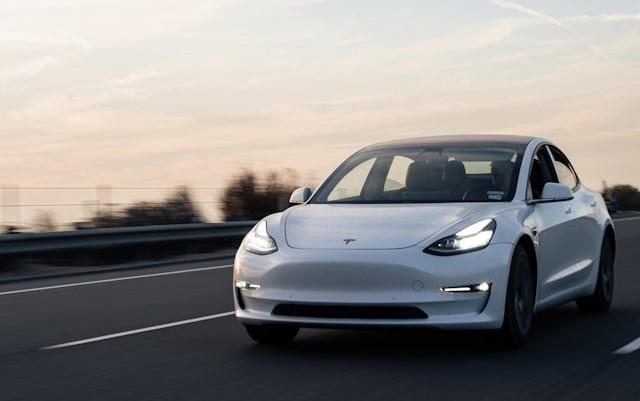Lloyd Alter at Carbon Upfront (heh! The “new” Treehugger”) is NOT a fan of the “Gigacasting” method that is overtaking the auto industry led by Tesla. That manufacturing technique involves high-pressure form/mold pressing of larger and larger parts for Teslas instead of press stamping lots of little pieces and then having to weld, rivet, or screw them all together.
Not only does it eliminate a lot of inventory of those parts, but it also lessens the number of steps in the manufacturing process and the hourly costs of many line workers who would be needed to do it.
The result is a much lower cost of manufacturing. Lloyd’s lament, however, is that it makes it harder and much costlier for someone to fix stuff that goes wrong.
I have to admit that when the entire gigacasted underside of a car is bent, even if only slightly after a fender-bender, the cost to repair is not just a few small pieces but most of a car’s cost. A dd in the cost of the battery bank (since we’re talking EVs) and it may well be totaled.
Like the Japanese cars coming over to the US starting in the 1950s and 1960s, EVs just happen to be getting that same bad rap – quality is cruddy, especially when compared to their gas-driven brethren. EVs are giving new owners more headaches, and Tesla is a big reason why: J.D. Power study:
J.D. Power’s study tracks responses from nearly 100,000 purchasers and lessees of 2024 vehicles within the first 90 days of ownership, and for the first time in the study’s 38-year history, it incorporates repair visit data. Overall, internal combustion engine (ICE) vehicles averaged 180 PP100 (or 180 problems per 100 vehicles), while battery electric vehicles (BEVs) averaged a whopping 266 PP100, 86 points higher than ICE vehicles.
Automakers have typically said that EVs are generally less problematic and require fewer repairs than ICE vehicles because they have a smaller number of parts and systems. However, J.D. Power’s study with newly incorporated repair data shows EVs, as well as plug-in hybrid electric vehicles (PHEVs), require more repairs than gas-powered vehicles in all repair categories.
“Owners of cutting edge, tech-filled BEVs and PHEVs are experiencing problems that are of a severity level high enough for them to take their new vehicle into the dealership at a rate three times higher than that of gas-powered vehicle owners,” wrote Frank Hanley, senior director of auto benchmarking at J.D. Power, in the study.
As Steve Green at Instapundit noted, “I’m so old, I remember when TCO was supposed to be EV’s big advantage.” And it is true! TCO, or Total Cost of Ownership, looks well beyond just the sticker price of getting the vehicle off the lot. That’s just the start of it. Two things were always hammered at us as to why we should go electric and ditch ‘Ole Faithful sitting in the garage because of fossil fuel usage:
- While gas engines have tons of parts and are rather complicated due to Government regulations, an electric motor is much simpler.
- Gas is much more expensive than electricity.
Yeah, well, see the quoted part about repairs; most of the needed repairs have nothing to do with the motors – it’s all of the other stuff in a car. Sure, I might give Tesla a pass on that due to “not much time in grade” with larger-scale design and manufacturing, but what about all of the other mainstay auto manufacturers getting into the EV space? Sure, they are dealing with the same issues with batteries, power distribution, and electric motors like Tesla but they’ve had a century of experience with getting all of the “other stuff” that makes up a car, right? So what’s their excuse for all this?
Part of that TCO is finding out that instead of getting 30-40 thousand miles on a set of tires, it’s more like 10-15 thousand—and much more expensive to boot due to larger sizes having to support all that weight of the battery bank. And the specter of replacing that bank far sooner than most have to replace an ICE engine.
This results in almost half of all EV owners starting to regret their choice to move away from internal combustion engine-based cars—they wish to rekindle that flame by ditching the EV.
We are starting to look at going back to being a two-car family again as TMEW won’t drive the F-150 crew cab (“too big!”) – it’s more like a RAV4 (and after seeing one yesterday, she’s willing to look at the new and much smaller Ford Maverick pickup). I asked her about getting an electric car. While she doesn’t read as much about them as I do, she has rejected that idea outright even as her driving will be REAL local. But what she’s read of the problems (lately, getting locked in a Tesla and unable to get out due to a malfunction), she decided she’ll stick with the known issues.
